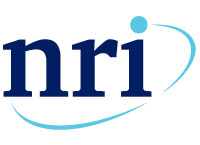As a result of travel restrictions introduced in response to the COVID-19 pandemic, Nuclear Risk Insurers (NRI) has been unable to carry out traditional physical surveys of nuclear power plants (NPPs) for most of 2020 and has instead been conducting surveys remotely.
NRI’s Engineering Surveyors have remotely surveyed three NPPs this year: Koeberg, near Cape Town in South Africa; Bruce Nuclear Generating Station near Kincardine in Canada; and South Ukraine NPP near Yuzhnoukrainsk in Mykolaiv province of Ukraine. Preparations are underway to remotely support a survey of Darlington Nuclear Generating Station, on the shores of Lake Ontario in Canada, in January 2021.
Dougie Burt, Engineering Surveyor at NRI, has managed remote surveys in South Africa and remotely supported surveys in Canada this year.
South Africa
Dougie had been due to conduct a physical survey at Koeberg in South Africa in March, but this was cancelled at the last minute due to COVID-19 and prompted a remote survey to be arranged in a matter of days. All the planning for a physical survey had already been done. The plant was entering renewal and NRI was aware of increased risks linked to a delayed steam generator replacement programme, so NRI was keen to carry out a survey to receive updates on plant performance and risk management at the plant.
Following the first remote survey, NRI arranged three quarterly videoconferences for the remainder of 2020 with management and staff at the plant to monitor how they were managing the risk. Discussions are supported by a significant amount of data provided prior to the videoconferences. Although the videoconferences have primarily been concerned with progress updates, they have also helped to cement personal bonds between NRI and the team at Koeberg.
“The frequency of the interaction during videoconferences has led to more personal and closer relationships, which have increased levels of trust,” Dougie comments. “This should improve interactions during the physical survey when we eventually visit the site, hopefully sometime early next year.”
Canada
The Canadian surveys have proven to be more straightforward, due to extensive preparations, a local presence and survey lead in Canada, provided by colleagues from Nuclear Insurance Association of Canada (NIAC), combined with the familiarity that both NIAC and NRI engineers have with Canadian sites as regular visitors during scheduled surveys. Both Canadian surveys assess the changing risk profile introduced by modifications taking place to support life extension programmes.
In the case of Bruce, these are related to the plant’s ongoing Main Component Replacement (MCR) programme, while Darlington is affected by changes introduced as part of its Refurbishment Project. Both programmes involve extended shutdowns of individual reactor plants and the gradual replacement of older systems in eight reactors (four on each site) during scheduled plant outages undertaken from 2016–2029. A comprehensive set of information and data is provided by the Canadian operators for review, prior to the surveys, which promotes further informed dialogue.
Ukraine
Val Martell, Engineering Surveyor at NRI, recently led an international team of surveyors from within the insurance pooling system when she managed a remote survey of the South Ukraine NPP.
“For remote surveys to function correctly, both sides need to make it work,” Val explains. “Fortunately, our Ukrainian colleagues are very thorough when preparing for surveys and always keen to make them successful.”
The Ukrainian team provided detailed information in advance, which the survey team, in turn, was able to review and reply to with questions aimed at assessing how well risk was being managed at the plant; these could then be further discussed during the remote survey.
Had there been existing concerns about the plant going through a particular operational change, a remote survey might not have been appropriate. But as it visits one of the four NPPs in Ukraine each year, NRI is very familiar with each site and there were no significant concerns about the South Ukraine NPP.
Engineering Sub-Committee (ESC) of the Nuclear Insurance Pooling system
NRI’s engineers are in touch regularly with colleagues in other Pools to share experiences of adapting to the challenge of survey restrictions and the changed ways of carrying out insurance risk assessments. Val Martell represents NRI on the ESC and comments: “It has been really constructive for us to be able to learn from each other. NRI contributes to best practice by identifying the things that have gone well for us, as well as being able to adopt good ideas and suggestions via the international ESC community of nuclear risk engineers”.
The ESC has now developed a framework so that if international travel is not possible, a physical survey can be carried out by domestic surveyors only, such as in the case of China. In countries where there are no domestic engineers, or at sites where non-essential visitors are not allowed, remote surveys are the best solution and have been shown during 2020 to be effective. This will be important in 2021 as COVID-19 restrictions continue to be in place.
NRI is a global leader in nuclear insurance and a member of the international nuclear insurance pooling system. Follow us on Twitter and LinkedIn to stay up-to-date with company news and industry commentary.
